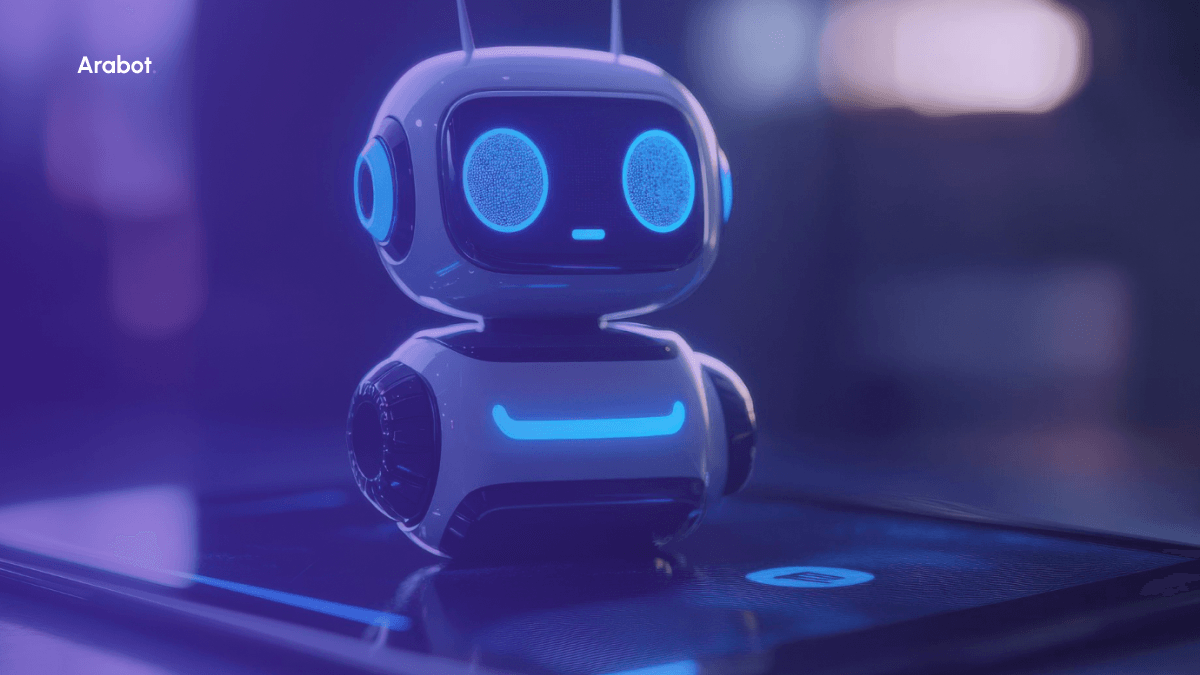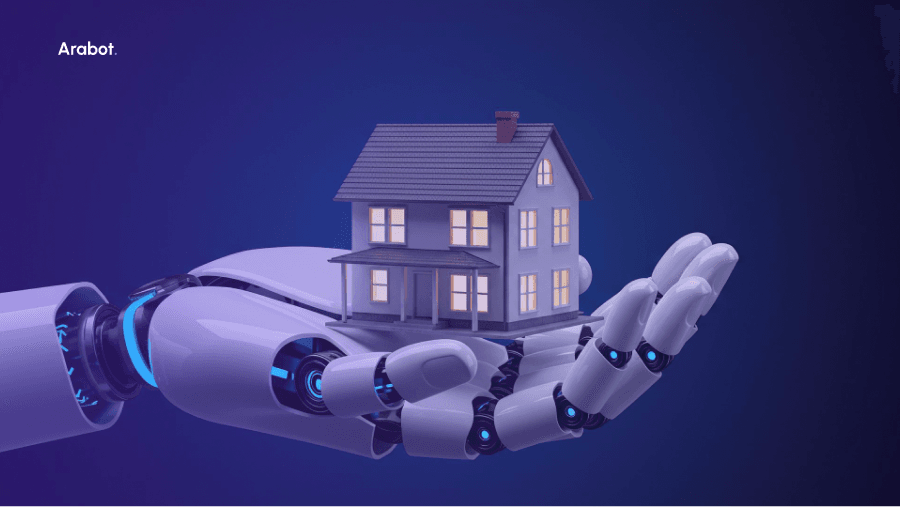AI Automation
Why Your Business Needs an AI Chatbot in 2024: Consumer Trends and Insights

In today's digital age, businesses face an unprecedented challenge: delivering exceptional customer experiences while maintaining operational efficiency and cost-effectiveness. As we approach 2024, this delicate balance has become a make-or-break factor for companies across industries. Amidst this landscape, the integration of artificial intelligence (AI) chatbots has emerged as a game-changing solution, empowering organizations to stay ahead of the curve and meet the ever-evolving demands of modern consumers.
Imagine a world where customers no longer endure frustrating wait times or fragmented interactions – a world where their needs are anticipated and addressed seamlessly, fostering loyalty and trust. This is the promise of AI chatbots, and the statistics and trends we'll explore in this article will unveil why your business can no longer afford to overlook this transformative technology.
From enhancing customer satisfaction and loyalty to driving operational efficiencies and empowering employees, the impact of AI chatbots is multifaceted and far-reaching. As we delve into the insights, you'll gain a comprehensive understanding of how this technology can propel your business to new heights, future-proofing your operations and solidifying your competitive advantage in an increasingly AI-driven marketplace.
Customer Preferences and Expectations
In the ever-evolving landscape of customer service, businesses can no longer afford to ignore the seismic shift in consumer preferences and expectations. The demand for efficient, personalized, and seamless experiences has reached unprecedented heights, reshaping the very foundations of how companies interact with their customers.
A commissioned survey in 2023 revealed a startling reality: a staggering 67% of banking customers and 62% of insurance customers stated their willingness to switch providers due to inadequate customer service. This statistic serves as a wake-up call for industries that have traditionally relied on personal interactions, underscoring the urgency to adapt and innovate.
Moreover, the survey highlighted that 42% of customers are unwilling to wait more than 10 minutes to connect with a customer service representative, while a staggering 81% would consider switching providers after consistently experiencing delays over 30 minutes. In an age where time is a precious commodity, these findings underscore the pressing need for businesses to prioritize efficient and prompt assistance.
However, amid these heightened expectations, a silver lining emerges: consumers are increasingly open to embracing AI solutions. The same survey revealed that 61% of consumers are willing to engage with chatbots and virtual agents if it means reduced waiting times. This shift in consumer readiness is further reinforced by the fact that 81% of customers desire more self-service options, signaling a growing acceptance of AI-powered assistance (Source: Gartner).
Yet, seamless communication remains a critical concern. Alarmingly, 60% of customers report feeling disconnected, as if they are communicating with separate departments rather than a unified company (Source: Zendesk). This fragmentation not only hinders the customer experience but also undermines brand loyalty and trust. Compounding this issue, 70% of customers expect full context in their interactions (Source: Salesforce), highlighting the need for personalized and contextualized engagements.
Efficiency and Performance Improvements
While meeting evolving customer expectations is paramount, businesses must also prioritize operational efficiency and performance to remain competitive. This is where the true power of AI chatbots is unleashed, offering a multitude of benefits that can transform organizations from the inside out.
One of the most compelling advantages of implementing AI chatbots is the significant reduction in wait times for customers. A staggering 59% of consumers indicated spending up to 20 minutes per month on hold, a frustrating experience that can be alleviated through conversational AI. Organizations that have adopted Virtual Customer Assistants have reported up to a 70% reduction in inquiries (Source: NICE), freeing up valuable resources and streamlining operations.
But the impact of AI chatbots goes beyond just alleviating customer frustrations. By integrating generative AI into business processes, organizations have witnessed a remarkable 66% improvement in user performance (SnapLogic). This newfound efficiency translates into tangible benefits for customers, with 34% citing faster response times as the biggest advantage of self-service options (NICE). Recognizing this trend, a staggering 62% of brands have increased their investments in self-service solutions (Hubspot), underscoring the strategic importance of empowering customers with AI-driven assistance.
To put these performance gains into perspective, consider a large financial institution that receives millions of customer inquiries annually. By implementing an AI chatbot system, the organization could potentially save millions of dollars in operational costs while simultaneously enhancing customer satisfaction through faster response times and improved first-call resolution rates.
Impact on Customer Loyalty and Satisfaction
In the fiercely competitive business landscape, customer loyalty and satisfaction are not mere buzzwords but the cornerstone of enduring success. It is here that the integration of AI chatbots can yield transformative results, solidifying relationships and fostering a sense of trust and belonging that transcends transactional interactions.
The correlation between customer service and loyalty is undeniable, with a staggering 97% of consumers and 98% of contact center managers acknowledging this profound connection (Calabrio). Personalization plays a pivotal role in this equation, as 71% of B2C and 86% of B2B customers expect companies to be well-informed about their personal information during interactions (Gartner). By leveraging AI chatbots, businesses can deliver tailored experiences that resonate with individual preferences and needs, cultivating a sense of being truly understood.
Moreover, the ability to leverage data analytics empowers organizations to continuously enhance the customer experience. A remarkable 72% of brands express confidence in using analytics reports to drive improvements (Deloitte), enabling them to identify pain points, anticipate trends, and proactively address customer concerns before they escalate.
However, the consequences of neglecting customer experience can be severe and long-lasting. Alarmingly, 49% of customers reported more negative service encounters in 2023 compared to the previous year (Emplifi), highlighting the urgency of addressing this issue. Even more striking, 49% of customers who left a brand cited poor customer experience as the primary reason for their departure (Amazon), underscoring the critical role that seamless, personalized interactions play in fostering loyalty and retention.
By integrating AI chatbots, businesses can not only address these concerns but also elevate the customer experience to new heights, fostering deeper connections and creating a competitive advantage that sets them apart in a crowded market.
Employee and Organizational Benefits
While the benefits of AI chatbots for customers are undeniable, their impact extends far beyond the realms of customer-facing interactions. These cutting-edge technologies have the power to empower employees, boost organizational efficiency, and drive cultural transformation within businesses.
At the heart of this transformation lies a remarkable statistic: 66% of employees believe that artificial intelligence improves their overall performance at work (Nielsen). By offloading repetitive tasks and streamlining processes, AI chatbots free up valuable time and mental bandwidth, enabling employees to focus on higher-value activities that drive innovation and growth.
This positive impact is further amplified by the implementation of generative AI, which has been shown to boost user performance by an impressive 81% (SnapLogic).
Imagine the potential for increased productivity, enhanced decision-making, and accelerated problem-solving when employees are empowered with such powerful tools.
However, the successful integration of AI chatbots requires a holistic approach that addresses cross-departmental collaboration and alignment. A staggering 50% of organizations struggle with effective communication between departments when aligning on customer experience data and feedback (CallMiner).
By leveraging AI-driven insights and fostering a culture of data-driven decision-making, businesses can break down silos, enabling seamless collaboration and ensuring a consistent, cohesive customer experience across all touchpoints.
Encouragingly, the adoption of AI within organizations is on the rise, with 60% of companies with reported AI adoption already utilizing generative AI in areas such as customer care and back-office support (McKinsey & Co). As this trend continues to gain momentum, businesses that embrace AI chatbots will be well-positioned to attract and retain top talent, cultivate a forward-thinking culture, and drive sustainable growth.
Conclusion
In the face of evolving consumer expectations, intensifying competition, and the relentless pace of technological advancement, the integration of AI chatbots has become an imperative for businesses seeking to thrive in the digital age.
As we look ahead to 2024 and beyond, businesses that embrace this technology early will be well-positioned to reap the rewards, from enhanced customer loyalty and satisfaction to streamlined operations and a future-ready workforce.
In the ever-evolving digital landscape, the integration of AI chatbots is not just a choice – it is a necessity for businesses seeking to remain relevant, agile, and customer-centric.
See how arabot can help you prepare for this!
© 2016 - 2026 copyright Arabot. All rights reserved.
 Insurance
Insurance Healthcare
Healthcare Automative
Automative Hospitality
Hospitality Banking
Banking Government
Government Telecommunication
Telecommunication Education
Education Human Resources
Human Resources
